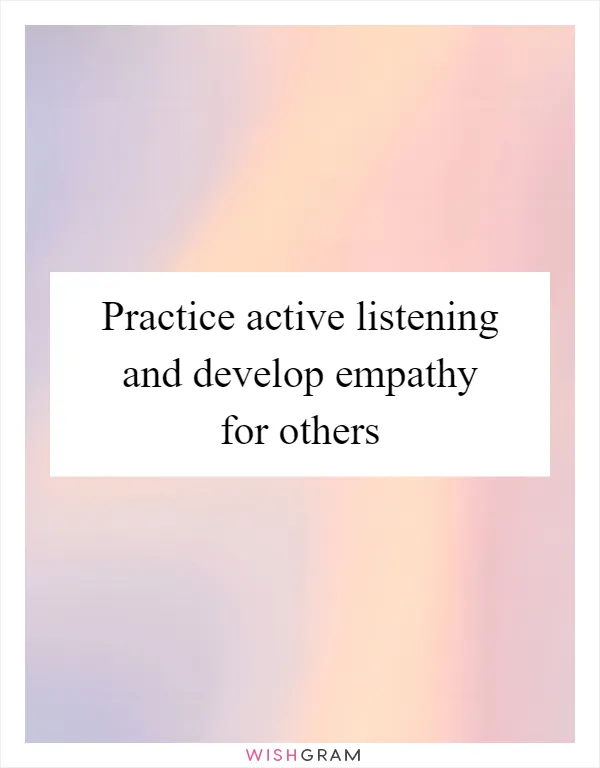Practice active listening and develop empathy for others
Active listening and empathy are essential skills that can greatly enhance our relationships and interactions with others. By practicing active listening, we can show genuine interest in what others have to say and create a supportive environment for open communication. Developing empathy allows us to understand and share the feelings of others, fostering deeper connections and promoting understanding. Let's explore how we can cultivate these valuable qualities in our daily lives.
Active listening involves giving our full attention to the speaker and making a conscious effort to understand their perspective. It means setting aside distractions and focusing on the person in front of us. By maintaining eye contact, nodding, and using verbal cues such as "I see" or "Go on," we demonstrate that we are actively engaged in the conversation. This not only helps the speaker feel heard and valued but also allows us to gain a better understanding of their thoughts and feelings.
To practice active listening effectively, it is important to avoid interrupting or imposing our own opinions. Instead, we should encourage the speaker to express themselves fully and without judgment. By asking open-ended questions and paraphrasing what they have said, we can clarify our understanding and show that we are genuinely interested in their perspective. This creates a safe space for open dialogue and encourages the speaker to share more openly.
Developing empathy goes hand in hand with active listening. Empathy is the ability to understand and share the feelings of others. It allows us to put ourselves in someone else's shoes and view the world from their perspective. By cultivating empathy, we can build stronger connections and foster a sense of understanding and compassion.
One way to develop empathy is by actively seeking to understand the emotions behind someone's words or actions. We can do this by paying attention to their body language, tone of voice, and facial expressions. By acknowledging and validating their feelings, we show that we care and are willing to support them. This can be as simple as saying, "It sounds like you're feeling frustrated. Is there anything I can do to help?"
Another important aspect of empathy is being non-judgmental. We should strive to suspend our own biases and preconceived notions, allowing us to truly listen and understand others without passing judgment. This creates an environment where people feel safe to express themselves authentically, knowing that they will be heard and accepted.
